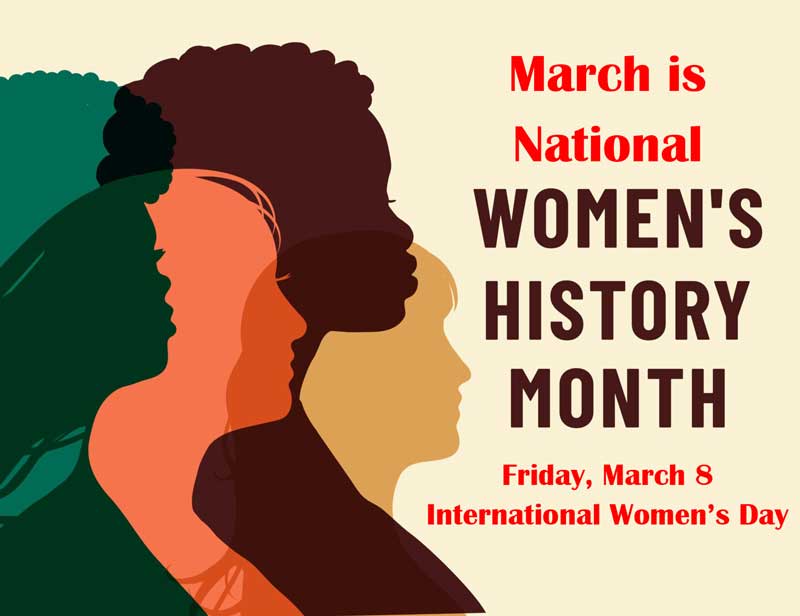National Women’s History Month celebrates the contributions women have made to the United States and recognizes the specific achievements women have made over the course of American history in a variety of fields.
The designation had its origins as a national celebration in 1981 when Congress passed Pub. L. 97-28 which authorized and requested the President to proclaim the week beginning March 7, 1982, as “Women’s History Week.” Throughout the next five years, Congress continued to pass joint resolutions designating a week in March as “Women’s History Week.” In 1987 after being petitioned by the National Women’s History Project, Congress passed Pub. L. 100-9 which designated the month of March 1987 as “Women’s History Month.” Between 1988 and 1994, Congress passed additional resolutions requesting and authorizing the President to proclaim March of each year as Women’s History Month. Since 1995, presidents have issued a series of annual proclamations designating the month of March as “Women’s History Month.”
The achievements of Antoinette Brown Blackwell, Henrietta’s national suffragist, women’s rights activist, social reformer, and the first ordained female minister in the United States, had a profound effect on American history. Her legacy carries on today.

